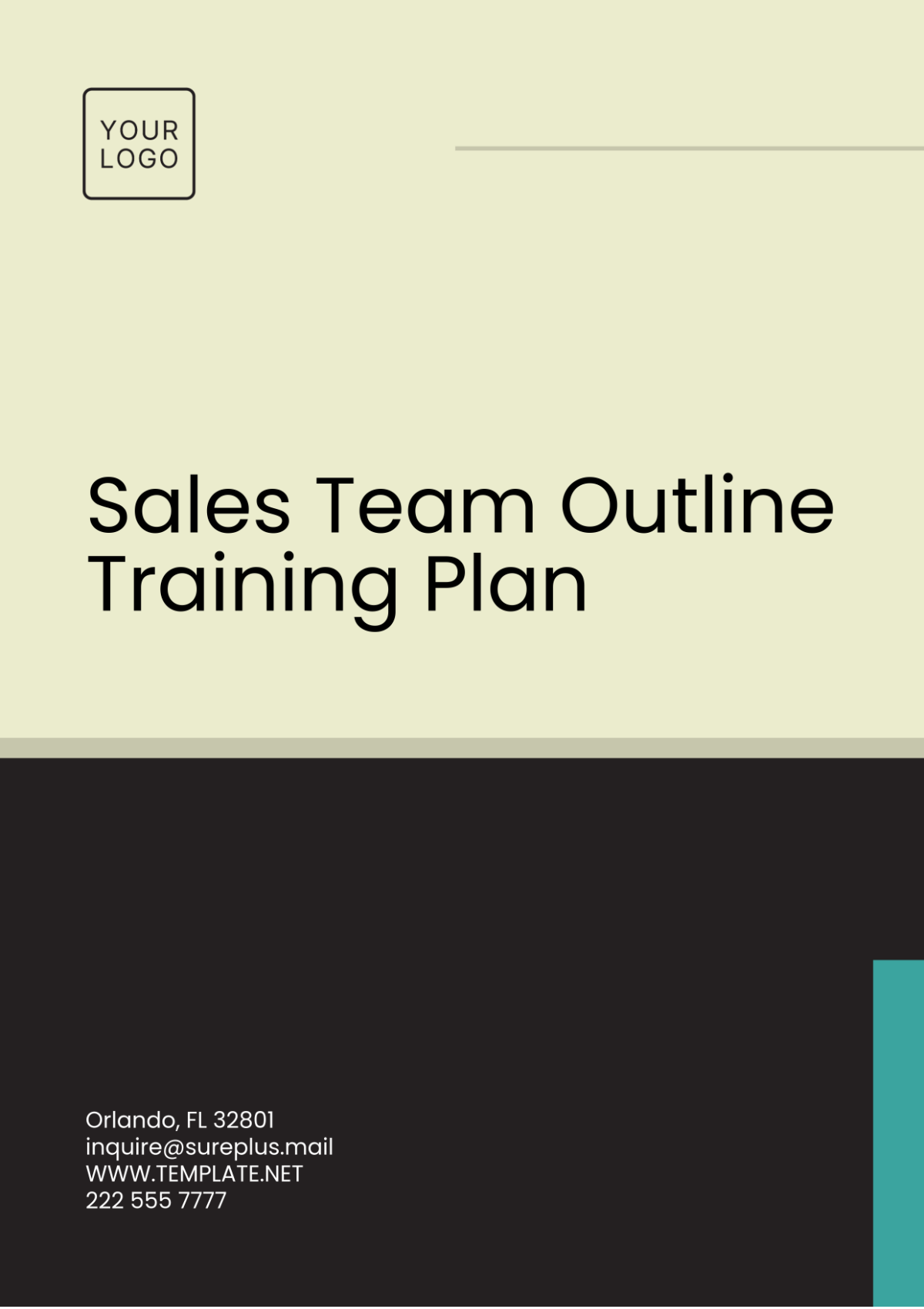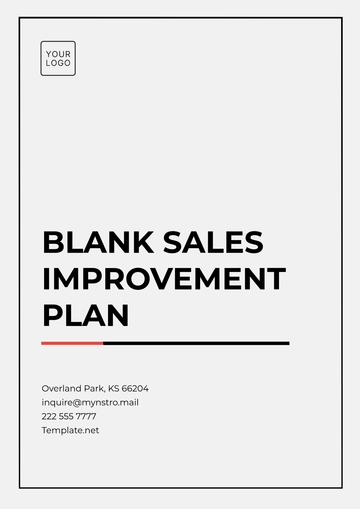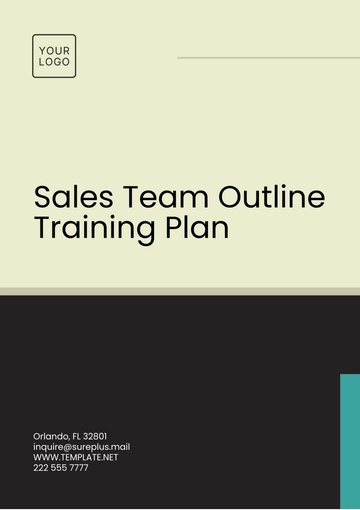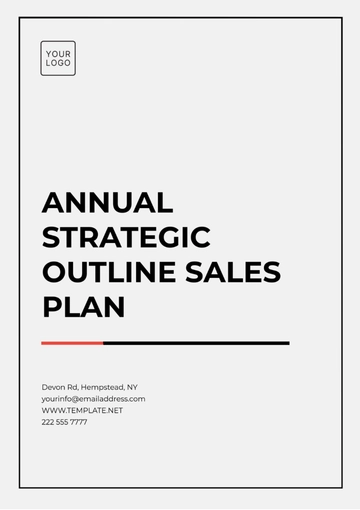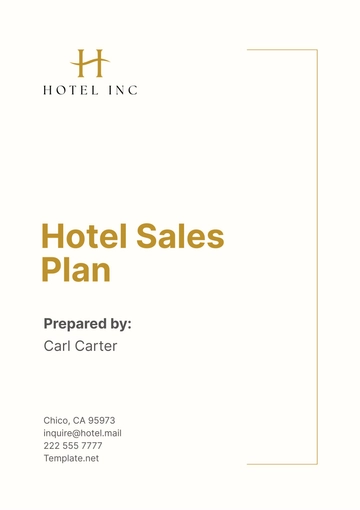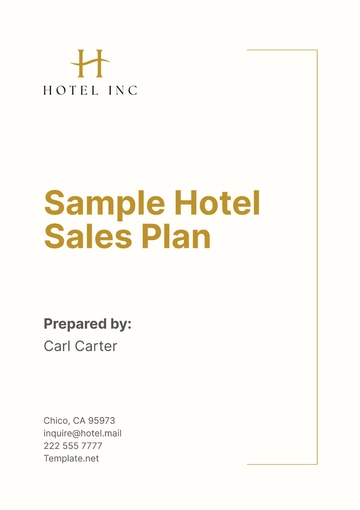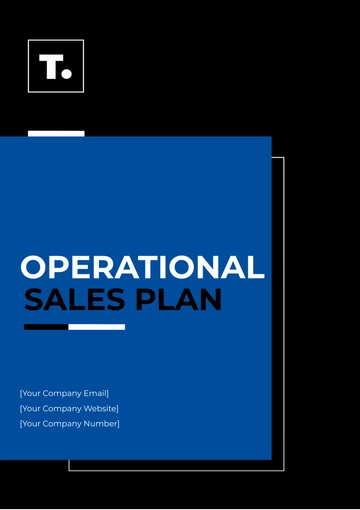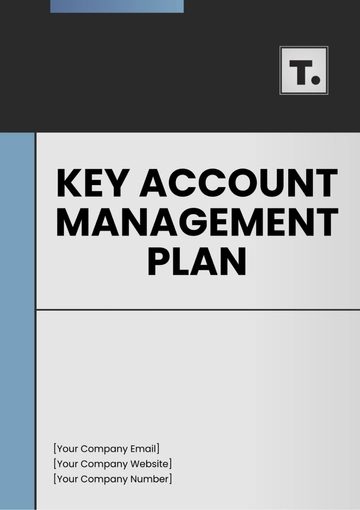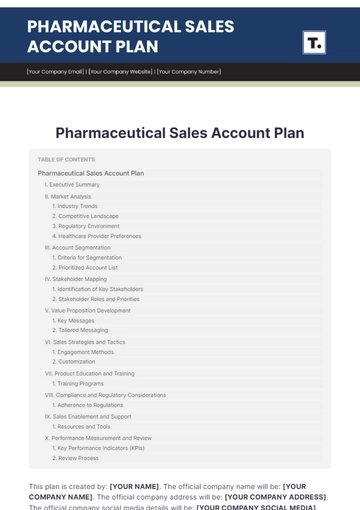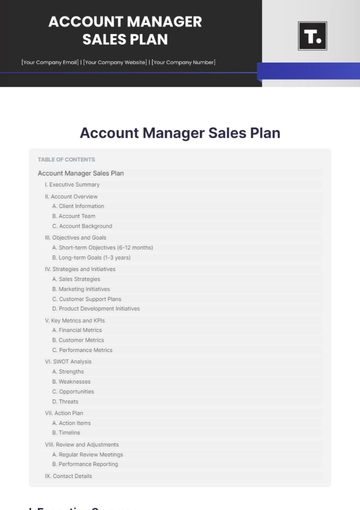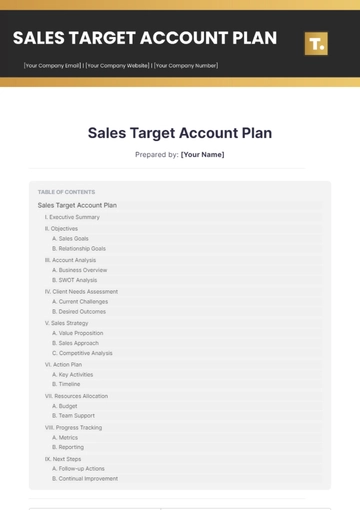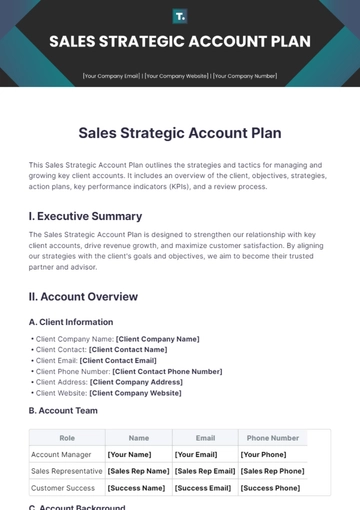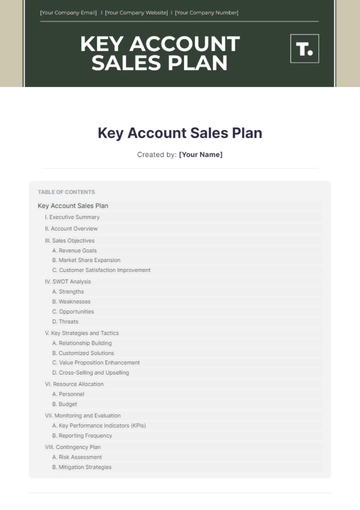Sales Team Outline Training Plan
I. Introduction
This training plan is designed to enhance the skills, knowledge, and performance of our sales team. Through structured and comprehensive modules, we aim to elevate sales strategies, strengthen customer engagement, and improve overall team productivity. The training is tailored to address both foundational and advanced skills, ensuring that every team member is well-equipped to meet the challenges of the market.
II. Training Objectives
The primary objectives of this training program are to:
Improve Sales Techniques
Equip team members with advanced selling techniques that will enhance their ability to close deals and convert leads into loyal customers.
Enhance Product Knowledge
Ensure that every member of the team has a deep understanding of our product offerings, features, and benefits to communicate effectively with prospects.
Develop Customer Relationship Skills
Train the team to build, maintain, and strengthen long-term customer relationships, leading to higher customer retention and satisfaction.
Increase Use of Sales Tools
Familiarize the team with CRM and other sales tools that streamline processes, improve efficiency, and support better decision-making.
III. Training Modules
The training will be delivered through a series of focused modules. Below is an overview of each module:
1. Sales Techniques
This module will cover critical sales strategies and skills to increase sales performance.
Closing Strategies
Techniques for effectively closing deals, including trial closes, urgency creation, and final offers.
Negotiation Skills
How to negotiate with customers for win-win outcomes, including handling price objections and overcoming negotiation barriers.
Handling Objections
Techniques for addressing and overcoming objections to maintain momentum throughout the sales process.
2. Product Knowledge
In this module, team members will gain a comprehensive understanding of the product suite to better communicate value to customers.
Product Features
Detailed exploration of key product features and their real-world applications.
Competitive Advantages
How our products stand out in the marketplace, focusing on unique selling points and differentiators.
Market Positioning
Training on how our products are positioned relative to competitors and the best ways to communicate this to prospects.
3. Customer Relationship Management
This module will focus on long-term relationship building, focusing on trust and communication.
Customer Service
Best practices for delivering exceptional customer service, including conflict resolution and maintaining satisfaction.
Effective Communication
Training on both verbal and written communication, including active listening and empathy in conversations with customers.
Relationship Building
Techniques to strengthen ongoing relationships with clients, ensuring repeat business and loyalty.
4. Sales Tools Utilization
Training on how to leverage CRM software and sales analytics tools to optimize performance and improve results.
CRM Software
Best practices for using CRM tools to track customer interactions, follow-up activities, and sales progress.
Sales Analytics Tools
How to utilize data analytics for lead scoring, forecasting, and performance tracking.
IV. Training Schedule
The training will be delivered over a set timeline, with each module focusing on a specific area. Detailed schedules are as follows:
Module | Date | Duration | Instructor |
|---|
Sales Techniques | January 10-11, 2050 | 2 days | Rocky Orn |
Product Knowledge | January 15, 2050 | 1 day | Maria Turner |
Customer Relationship Management | January 20-21, 2050 | 2 days | Jewell Ward |
Sales Tools Utilization | January 25, 2050 | 1 day | Elvie Block |
V. Evaluation and Feedback
At the end of each module, participants will complete a feedback form to evaluate the effectiveness of the training. The feedback will focus on:
Additionally, a post-training evaluation will be conducted after the completion of all modules to assess overall effectiveness and areas for improvement. Key performance indicators (KPIs), such as sales conversion rates and customer satisfaction scores, will be tracked over the next quarter to measure tangible improvements in performance.
VI. Post-Training Support
To ensure that the training’s impact is long-lasting and that team members continue to grow, the following support mechanisms will be implemented:
Ongoing Coaching
Periodic one-on-one coaching sessions with the sales manager to reinforce learning and address any challenges.
Sales Practice Sessions
Regular role-playing and scenario-based practice sessions to enhance confidence and refine techniques.
Peer Learning
Encourage team members to share success stories and challenges in bi-weekly meetings to foster a culture of continuous learning.
VII. Conclusion
This training program is a strategic initiative to elevate our sales team’s capabilities. With a clear focus on improving skills, increasing product knowledge, and optimizing the use of sales tools, we aim to achieve greater success in converting leads, building customer loyalty, and boosting overall sales performance.
Plan Templates @ Template.net
